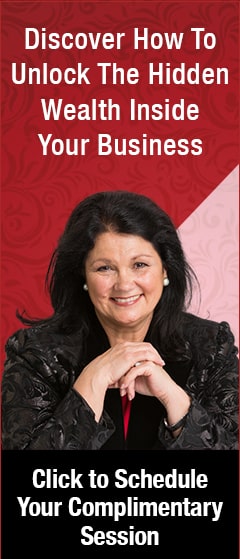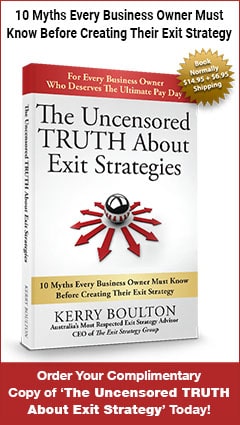How I Got My Start in Business
I was sixteen years old when I started in the workforce as a secretary. I was self-educated pretty much alongside the best people I could possibly find to learn from. And finally, one day an opportunity presented itself for me to have my own business. I was then 20 years down the track, but I had been through a number of different industries.
I had risen to a levelling in a corporate, which was Mayne Nickless Limited, and I was the first female general manager in that organisation. I ran an international freight forwarding business. When they decided they wanted to be out of the business, I put up my hand and said, “I would like to buy the business.” And so, that was the beginning of the first of my businesses.
How I funded that business is actually a really interesting story, especially when you look back. The business plans that you write when you are in a corporate organisation and not the business plans you have to write to actually go out and find investors.
One of the things that I learned from a book back then, which was called, “How to Write Plans that Win $$$,” had just been released. It was written by Stanley Rich and David Gumpert from MIT, Massachusetts Institute of Technology.
I got hold of the book. I read the book from cover to cover in 24 hours and I wrote my plan exactly by the book, because I did have to get investors.
I went to a mentor, which of course is another really important person to have in your life. I went to a mentor who said to me, “Kerry, you write the plan. If you can convince me, I’ll help you to get the money together.” And that’s exactly what he did.
I instantly had sixty-three staff, five offices around Australia and 120 international agents. And I gave birth to my first child the day I had to sign the contract. Which women will appreciate, of course.
The first couple of years were incredible, through every possible upheaval you could imagine. Because this was 1987, Black Friday, world stock markets crashed and we had tragedy. Unfortunately, one of my state managers was killed in a car accident. We had ramping interest rates that were up around 18, 19, 20%, in terms of finance costs. It was enormous. We had a rollercoaster ride basically, up and down, up and down.
The beginning and the end of my business plan worked out exactly as I’d planned, which was the first experience of having to have an exit strategy.
One of the things I learned was, particularly if you have investors, that they have to know how to get that money out of the business. Part of my thinking back when I was going to buy the business was how were we going to exit the business. And the plan was to sell it off to an international group somewhere between the 5- and the 10-year mark. And that’s what happened.
Along the way, it was really a rollercoaster like every other business. We won a small business award. We went through the Telstra small business awards and won a small business award. We went through the whole quality movement, continuous improvement, which was outstanding. I would still highly recommend—the systems and processes that we call today—understanding what continuous improvement is all about.
That sounds like corporate-speak, cross-functional teams. But of course, people in five states around Australia, all having to work together plus your overseas agents, everyone has to work together.
By implementing those proper systems and processes, we found profit leakages; costs that we were incurring that we got rid of. We really turned the business around. I think in one year we had about at $1.5-million turnaround, which was amazing.
I sold that business nine years later. I would say that there was a lot of learning experiences in that process. We were happy in the end. That wasn’t multimillions. I would love to say that it was but we got our money. We got our return on our investment and it gave us cash flow over the nine years.
The most important part of that change-over, really, was that everyone had a job. That was the most important part for me.
After that I started a real estate business and ran it for 11 years, from ’96 to 2007. That was a multi-million-dollar bottom-line return.
People will sell their businesses for all sorts of different reasons. It can be that it was part of the original strategy, which in fact was mine. It can be that they have had enough and they just want to get out. It can also be that they want a return on their investment or that they want to change. They want to get into something new again and reap the rewards of something that they’ve created over time. But you know there are so many different reasons that people actually want to get out, but mostly it’s about a return on investment.
And there’s a tsunami of business sales coming. No matter where you are, it is absolutely coming. You can’t avoid the fact that there is this great big bubble that is the baby boomer generation. The majority of businesses are private businesses. More than half are owned by baby boomers. No matter where you are in the world, those statistics hold up.
It is coming. I have been starting to crow about it and saying to people, “Start to get your business ready because there are not too many that are ready now. Even if you really have a good strong, viable business, unless it’s managed for sale, you will not maximize what you can get from it at all.”



Recent Comments